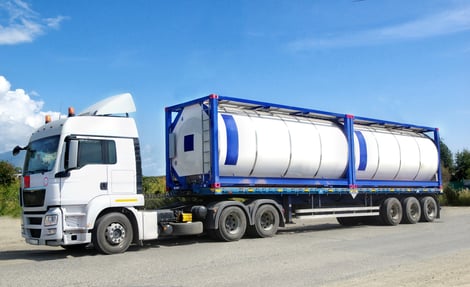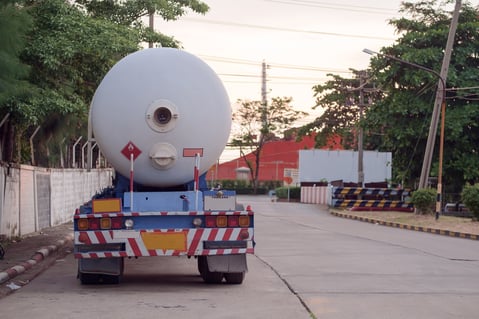Oil and gas industry vehicle fleets face numerous challenges not commonly found in other transportation fleets. The petroleum products oil and gas fleets often carry can be inherently dangerous—requiring extra caution and protection.
However, oil and gas fleets do more than just transport product, many fleets also help move extraction supplies such as tubes, pumps, sand, and other resources/tools to drilling sites so extraction can continue smoothly and on-schedule.
Oil and gas companies need to maximize efficiency and safety to meet production goals and minimize revenue lost to delays. These companies are constantly on the lookout for ways to improve their day-to-day operations.
One way to improve operations would be to use oil and gas fleet tracking systems for fleet vehicles.
Ways that oil & gas fleet operations can benefit from the use of GPS fleet tracking include:
1: Improved Route & Schedule Adherence
A major part of ensuring oil & gas fleet safety is picking the right route and upholding the right schedule to avoid congested or hard-to-navigate roads. The problem is that, without some form of tracking for monitoring when and where vehicles are traveling, oil and gas fleet managers cannot really know if their schedules & routes are being adhered.
With GPS tracking for oil and gas fleets, however, fleet managers can quickly and easily verify if route plans and schedules are being held (and make sure that Hours of Service rules aren’t being violated). This helps minimize collision risks on the road and keep deliveries of product on-schedule.
2: Identify Bad Driving Habits for Correction
In a perfect world, every driver would hold to some hard, fast rules for driving safely. However, in the real world, drivers don’t always practice safe & efficient driving habits.

While the occasional bit of hard braking or acceleration might be unavoidable because of road conditions, consistent use of bad driving practices can indicate habits that need fixing. Bad driving habits such as hard acceleration not only waste fuel, they can increase the risk of a driver being involved in a traffic collision.
With GPS tracking devices, oil & gas fleet managers can closely monitor the driving habits of each driver in their fleet. By noting patterns of bad driving habits, fleet managers can reach out to drivers and correct major recurring issues.
This can increase the safety and efficiency of the vehicle fleet.
3: Improved Vehicle Maintenance Scheduling
Keeping an oil and gas fleet in tiptop shape can be a massive challenge for fleet managers. Required routine inspections can help a lot, but problems can happen all too often in between inspections.
GPS fleet tracking systems can help improve vehicle maintenance by tapping into each fleet vehicle’s onboard diagnostics systems—giving fleet managers real-time remote diagnostics for every GPS-tagged vehicle.
Armed with this information, fleet managers in the oil and gas industry can quickly identify potential maintenance issues and use preventative repairs to keep vehicles in top shape—repairs which are often faster, easier, and less expensive than comprehensive repairs to fix a breakdown.
4: Theft Prevention
GPS tracking helps to prevent a lot of different kinds of theft. One of the biggest and most important kinds of theft GPS can help prevent is the hijacking of semi-trucks and the trailers they use to transport oil and gas.
With GPS tracking, if a truck/trailer is stolen, fleet managers can forward the GPS data to law enforcement on a moment’s notice. This can greatly speed up recovery of a stolen vehicle, and help prevent the total loss of the truck and its cargo.
However, GPS tracking can prevent another kind of theft as well: fuel theft/fraud. In some cases, drivers may over-report their fuel consumption for increased reimbursement, or may be giving fuel the company pays for to others for monetary compensation.
With GPS tracking logs, fleet managers can compare the miles and time a fleet vehicle was in operation versus the reported fuel consumed by the vehicle. By finding discrepancies, fleet managers can identify fraud/theft of fuel and nip the problem in the bud.
In short, the biggest benefits that oil & gas fleet managers can see from using GPS fleet tracking include:
- Increased safety by monitoring and correcting driving behaviors
- Improved efficiency by enforcing schedule adherence and preventing unauthorized use of vehicles
- Reduced theft risk through location and vehicle use tracking
- Better maintenance for fleet vehicles that focuses on less expensive preventative measures that keep vehicles operating at peak efficiency
Learn more about how GPS fleet management systems can benefit your oil & gas fleet today!






